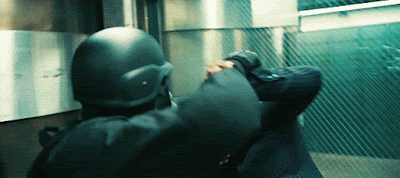Robert Eggers' new remake of F.W. Murnau's classic 1922 silent horror film Nosferatu: A Symphony of Horror, is respectful of the original—it's on the director's list of favorite films—but allows for Eggers' darker interpretations of myths, his sexualization of those myths, as well as his emphasis (as with David Lynch) on texture.
Eggers also has an advantage in that he's had over a hundred years of cinema to be inspired by in the years between Murnau's version and his. Watching his Nosferatu one can see the debt he owes to Francis Ford Coppola's Bram Stoker's Dracula (with its shadow-play and use of miniatures), but also in the addition of making the attraction between Count Orlok (Bill Skarsgård) and Ellen Hutter (Lily-Rose Depp) a predestined certainty—Ellen has been diagnosed as "melancholic" for her sleep-walking and agitation in her youth and it only intensifies once her husband Thomas (Nicholas Hoult) falls into the orbit of the Count. This "love for the ages" concept wasn't originally part of the "Nosferatu" heritage.The other major influence is from Stanley Kubrick's The Shining. Eggers shares Kubrick's love of framing his shots with the one-point-perspective, but here he employs it the way it was done in the Stephen King adaptation—that one-point-perspective leads the eye to a negative space, which is why the effect is so creepy and audience-disorienting. Here, all those tangential lines may lead only to an empty spot on the horizon...or a castle in the distance. There are whole sequences that give you a vertiginous feeling, as if one could fall into that screen, pulled by gravity and it's not a pleasant experience. For a horror movie, it's ideal. Unnerving, but ideal.
And he does something else: his camera may be fluid, but it's also austere. He'll frequently do a 360° turn of the camera and do it slowly, determinedly, placing the audience in the perspective of the character watching his environment, dreading whatever might be at the edge of the frame. It's been awhile since I've seen either movie, so I can't remember if it was Murnau or Carl Theodore Dryer's Vampyr where the camera makes similarly slow circular movements that, rather than make you wonder why you're making the trip, fill you with dread. They're nice touches and are nice little updates to the story-telling.And it's a familiar story—anyone familiar with Stoker's "Dracula" knows it. A solicitor is sent to the castle of a count to finalize the selling of an estate. The man is sent through the machinations of his boss who is under the throes of the Count's influence, as the man is, in fact, a vampire. He makes his way to the new estate and begins to set upon the citizens there, most prominently, the woman closest to that poor solicitor.This leads to visits by doctors, who, being scientists, cannot explain the malady and so a specialist in the "unconventional" is called upon, and it is he who deduces that the plague in their midst is a vampire and must be dispatched. This being Nosferatu, the names are changed, but the situations are basically similar. "Dracula" takes place in England; Nosferatu takes place in Germany. All the arcana we associate with vampires is stripped to the bone—no silver bullets or crucifixes (much in display but ineffectual), not even a clove of garlic is to be seen. Those killed by vampires die and stay dead, and although a stake through the heart is effective to kill them (if one comes prepared), the surest way is to distract him with a nice virginal meal until the sun comes up and...that vampire's toast.The acting is quite good, with particular nods to the three leads, Hoult, Depp and Skarsgård. Hoult has the unenviable task of having to act like he has no idea what the audience is fully expecting to happen, but manages to make his Thomas Hutter still sympathetic when he makes the effort to complete his job even after all the signs tell him him should just turn around and go home. And Depp's performance is just plain scary. Her fits look truly traumatic with her eyes rolling back in her head and her body contorting and spasming into Exorcist-like exercises. And Skarsgård's Count Orlok has been carefully distanced from Max Schreck's rat-like vampire. Described as "very old and very eccentric...he has one foot in the grave already" Orlok is a hulking figure, stooped and wrapped in a dark bear-like coat with a coarse, brushy mustache. He is barely visible in his first scenes, just a overpowering presence, but the more you see, the more he resembles a rotting corpse, his skin flayed off in places and as far afield from any semblance to a romantic figure (ala 1979's Dracula) as you could get.But, it's his vocal performance more than anything that's fascinating. Speaking in a low, rattly and sepulchral growl (augmented electronically so it fills every speaker in the theater) every syllable is e-nun-ci-ated slowly only to be broken off by the driest asthmatic breath-intake you can imagine this side of an iron lung. If the theater allows such things, I would take a big bag of cough-drops or lozenges. Super-size the soft-drinks.Face it, it's those new approaches to things are what you're looking to see the movie for, because the story has been done to death...and after...and has more lives than Christopher Lee's Dracula. Just when you think you can't squeeze any more blood out of the thing,** it comes back to haunt you. So, just remember: you're the one who invites him back.



















































